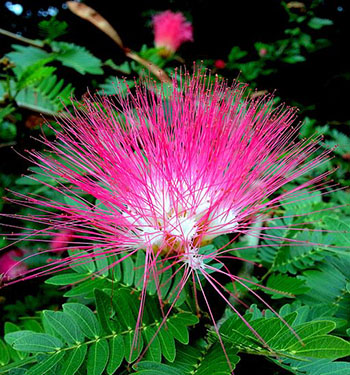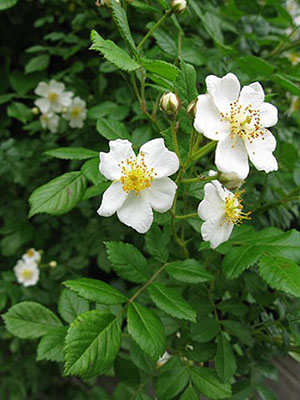Oh Exotic One - What Are We Going To Do With You?
By Environmental Management System
February, 2014

Photo courtesy of Gayatri Priyadarshini
Invasive species are one of the leading threats to biodiversity and impose enormous costs to agriculture, forestry, fisheries, and other human enterprises, as well as to human health. They can increase the intensity and severity of forest fires, alter water quality, impact soil nutrients, produce toxins, and alter fragile ecosystems. Invasive species can be plants or animals or even zebra mussels.
Based on the incredible threat invasive species pose to communities across the country, governments, and nonprofits have begun to work to stop their spread and limit their impact. Countless conservation groups have banded together to educate and advise citizens about how to lessen the impact of invasive species. The Southeast Exotic Pest Plant Council (SE-EPPC) has initiated the Early Detection and Distribution Mapping System (EDDMapS) to track the spread of invasive plants species. Furthermore, every federal agency is mandated by the 1999 Executive Order 13112 to prevent the introduction of exotic species, limit their spread, and minimize the economic, ecological, and human health impacts that they can cause.
In addition to organizations and governments, individuals should have a role in limited the spread of invasive, exotic plants and animal species.
What Can You Do To Stop The Spread of Invasive Species?

Photo courtesy of Qwert1234
- Be informed as to what exotic, invasive species are and recognize how they become established and spread.
- Learn to identify local invasive species, and if you are able and it is safe, remove them when you find them.
- Control larger invasive plant species infestations by mowing, cutting, pulling, over-mulching, painting, or spraying.
- When gardening, use native rather than non-native species suited for your area.
- If you plan to plant non-native plant species, check ahead of time that they are not a known invasive species in North Carolina.
- Share knowledge of invasive species and their impact with gardening neighbors.
- When gardening, use herbicides and pesticides as a last resort and only according to manufacturer’s recommendation.
(Some of this information was drawn from the United States National Arboretum)
Additional References on Invasive Species
- Invasive Species Program from the United States Fish and Wildlife Service

